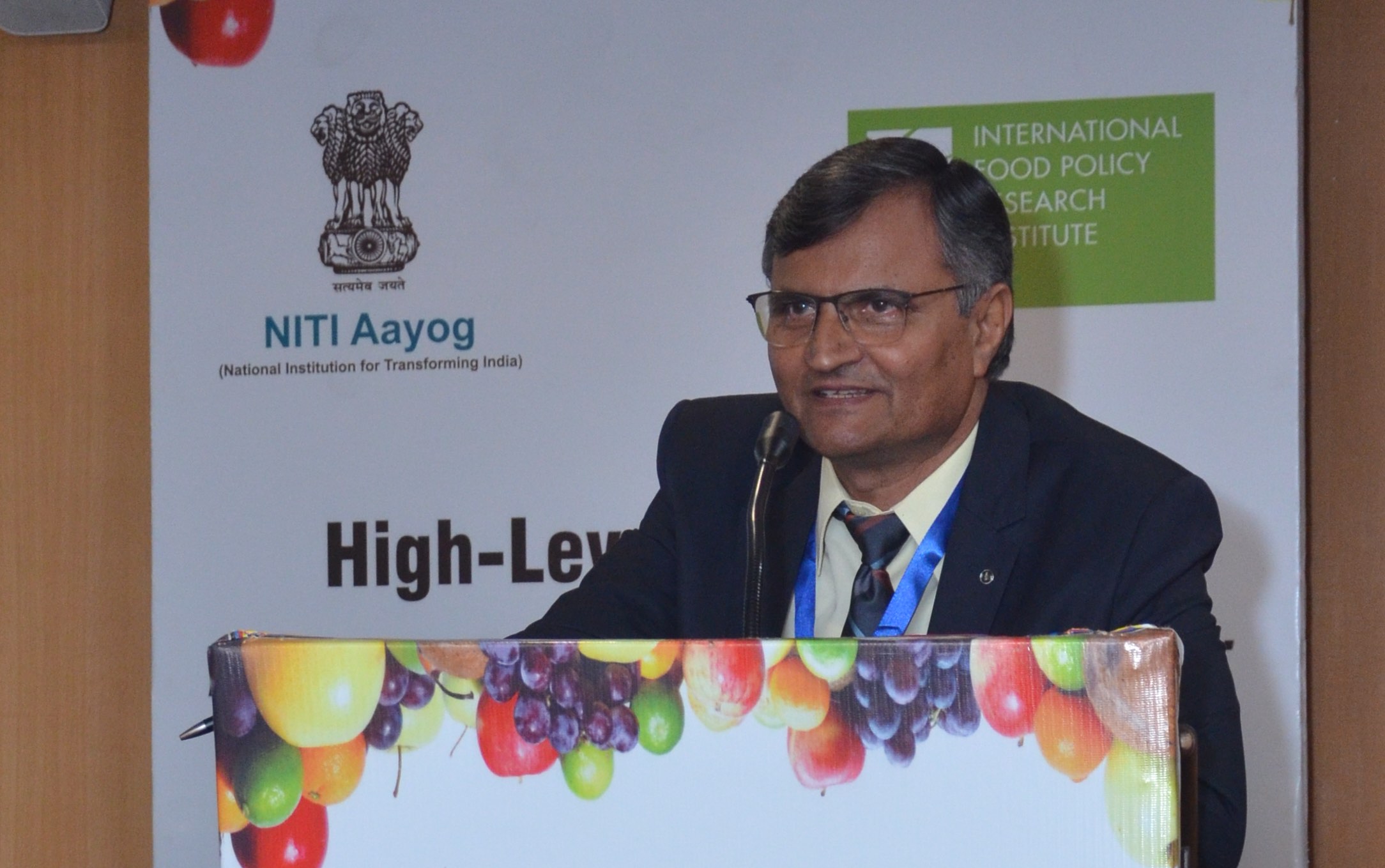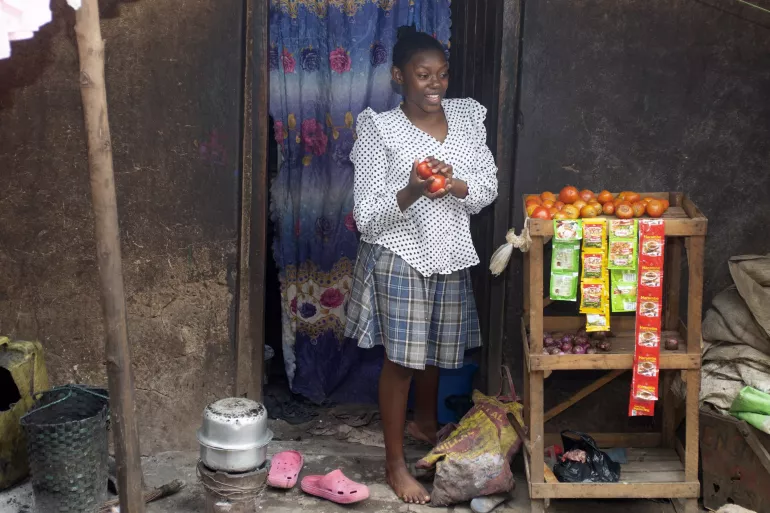Meeting the Sustainable Development Goal 2 of Zero Hunger requires a holistic approach to food systems and this will mean reshaping and reforming those systems to deliver healthy, nutritious diets and reduce environmental and carbon footprints. Participants at a Dec. 4 high-level symposium in New Delhi—organized by IFPRI and India’s premier public think tank, NITI Aayog (National Institution for Transforming India)—discussed the wide-ranging implications of these changes for South Asia.
An understanding of food systems is crucial to improving nutrition, IFPRI South Asia Director P.K. Joshi said, welcoming participants. The Indian government has launched a number of policy initiatives to improve the nutritional profiles of the country’s poor and vulnerable that embrace this approach, he said. These include the National Nutrition Mission, aimed at children aged 0-6, adolescent girls, pregnant women and lactating mothers. The government has also targeted 101 impoverished districts under its Transformation of Aspirational Districts program.
In his opening remarks, IFPRI Director General Shenggen Fan noted that without the Green Revolution or agricultural development in the subcontinent over the past 50 years, many more people across South Asia would have suffered from chronic hunger. The next set of challenges for food systems in the region include transforming the use of land and water and limiting carbon emissions from agriculture, he said, and also the rising trend of overweight and obesity leading to increased incidence of non-communicable diseases such as diabetes, heart attacks, and strokes. (Fan, along with IFPRI’s board members and senior management team, participated in the symposium organized on the sidelines of the board’s annual meeting in New Delhi.)
IFPRI Board Chair and former Indonesian Trade Minister Mari Pangestu laid out the challenges that climate change, population growth, urbanization, and expanding middle classes pose to ensuring healthy and nutritious food systems. The rise of anti-globalization politics has also created unexpected difficulties. “We are in very challenging times in terms of trade policy. The pushback against globalization doesn’t provide a good climate for the trade policy reforms that we need to do … a lot of distortions still exist in trade policies—such as trade protectionism and domestic trade policies, which raise the question of how to create efficient and resilient food systems,” said Pangestu.
NITI Aayog member Ramesh Chand outlined monoculture of grains and other staple crops as a key factor affecting India food systems, posing risks that include overuse of fertilizers, increased susceptibility to pests and diseases, and low productivity.
Transforming the farming system is a complex task that will impact nutrition, food security, and gender balance, Chand said. “To examine this issue further, we should focus on three aspects of the farming system,” he said. “First, effect of changes in present production system on consumers, producers, sustainability and natural systems; second, what is driving changes in the farming system; and third, policies that are shaping the farming system.”
IFPRI Board member Margaret Catley-Carlson shared the success story of India’s dairy sector as an example of transforming food systems. The 1970 launch of Operation Flood by Verghese Kurien aimed at linking rural dairy farmers with markets through cooperatives, cutting out middlemen, ensuring higher prices for the farmer, and the introduction of modern technology. The “White Revolution” transformed India from a milk-deficient to a milk surplus nation—and by the late 1990s, into the world’s largest dairy producer and exporter.
Four of IFPRI’s senior research fellows presented work on related issues in India and South Asia. Akhter Ahmed, IFPRI’s Bangladesh country lead, addressed women’s empowerment and nutrition. Using the Women’s Empowerment in Agriculture Index (WEAI) and national survey data in Bangladesh, Ahmed said, research has found that agriculture diversity increases both household and child dietary diversity. Simultaneously, women’s empowerment improves maternal child and household dietary diversity and increases agricultural diversity.
Better data and empirical evidence are critical to improving India’s nutritional programs, said Purnima Menon, a senior research fellow with the Poverty, Health and Nutrition Division. The government faces several problems in ensuring its programs are broadly effective, she said. Publicly-funded nutritional interventions have a variable reach across states; and over the years, stunting has decreased, but there has been no significant change in anemia. Meanwhile, overweight and obesity are now rising, presenting a new set of problems. Devesh Roy, a senior research fellow with the CGIAR Research Program on Agriculture for Nutrition and Health (A4NH), outlined India’s transformation from a food desert to nutrient desert, in part due to the increasing penetration of packaged and processed foods in every nook and corner of the country—contributing to rising overweight and obesity.
IFPRI-SAR Senior Research Fellow Avinash Kishore presented evidence on strategies to stabilize pulse production, consumption, and prices in the country. “Pulses provide a good case study that represents problems of the wider food systems in the country,” he said. To ensure good prices for farmers as well as consumers, he recommended increasing and stabilizing domestic production, adoption of a pulse-specific minimum support price formula, and building small strategic reserves instead of large public procurements.
Gokhale University’s Bhushana Karandikar outlined ways to create better nutritional environments— advocating a “bottom of the pyramid” approach targeting villages. As food companies routinely market snacks and other processed and packaged foods in villages, “bad food drives away good food,” she said. “To ensure availability of nutritious food, information is most crucial part. We must create an environment where nutrition trade can bloom. For that, we need trade enablers such as certification and traceability.”
Smita Aggarwal is an IFPRI Communications Specialist.







